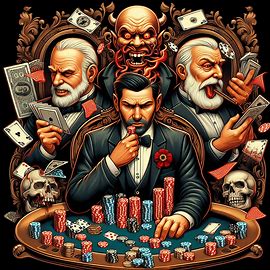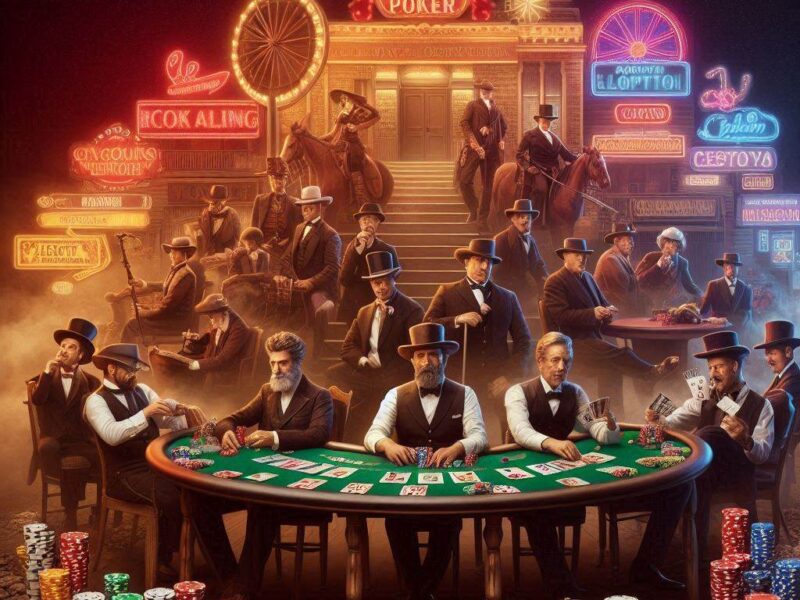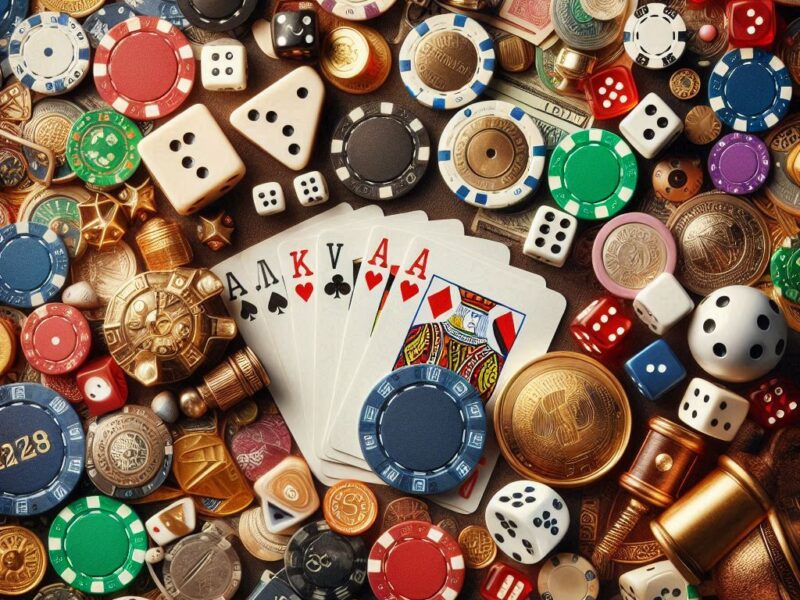In the high-stakes arena of casino poker, where fortunes can be made or lost on the turn of a card, mastering the art of the bluff is akin to wielding Warfare in Casino Poker a psychological weapon. It’s not merely about playing the cards you’re dealt but playing the players around the table. This deep dive into the psychological warfare of casino poker reveals how bluffing is not just a skill but an art form, requiring a blend of intuition, timing, and sheer audacity.
The Psychology Behind a Successful Bluff
At its core, a successful bluff hinges on deception, Warfare in Casino Poker convincing your opponents you hold a stronger hand than you actually do. This psychological maneuver is predicated on understanding human behavior, recognizing patterns, and exploiting them. A proficient bluffer knows that poker is not played in a vacuum; each player brings their own fears, hesitations, and tendencies to the table.
Understanding the psychology of your opponents is crucial. Are they conservative, playing only when they have a strong hand, or are they aggressive, willing to take risks on weaker hands? Answering these questions allows a player to craft bluffs tailored Warfare in Casino Poker to exploit specific vulnerabilities. For instance, bluffing against a conservative player might require a different approach than bluffing an aggressive player who’s more willing to call.
The Elements of an Effective Bluff
An effective bluff is a confluence of several elements, each meticulously calibrated to the situation at hand. Timing is paramount; knowing when to bluff is as important as knowing how to bluff. The best bluffs are those deployed at moments when they’re least expected, but when they align with the narrative you’ve built over the course of the game.
Positioning at the table also plays a critical role. Being in a late position allows you to gauge your opponents’ confidence in their hands based on their betting patterns, providing valuable information on whether a bluff might be successful.
Another critical element is bet sizing. A bluff must be convincing; bet too little, and it might seem like a feeble attempt to stay in the game. Bet too much, and you might risk more than necessary. The size of your bet should reflect what you want your opponents to believe about your hand.
The Mental Fortitude Required for Bluffing
Bluffing is not for the faint-hearted. It requires nerve and the ability to maintain a poker face, concealing any tells that might give away your true intentions. This mental fortitude extends beyond just one hand or game; successful bluffing demands a consistent ability to manage and manipulate your own emotions while deciphering those of your opponents.
Moreover, the psychological impact of bluffing on both the bluffer and the bluffed cannot be understated. Pulling off a successful bluff can significantly boost the bluffer’s confidence, while falling victim to a bluff can lead to second-guessing and a potential tilt, where emotion overrides logic, leading to further mistakes.
Conclusion
Mastering the bluff in casino poker is a testament to a player’s understanding of the psychological dynamics at play. It’s a delicate balance of art and science, requiring a deep understanding of human behavior, a keen sense of timing, and the courage to take calculated risks. The ability to bluff effectively can transform an average player into a formidable opponent, turning the tables with nothing more than a confident bet and an unreadable expression. In the psychological warfare of casino poker, the bluff is indeed a potent weapon, capable of securing victory from the jaws of defeat.


